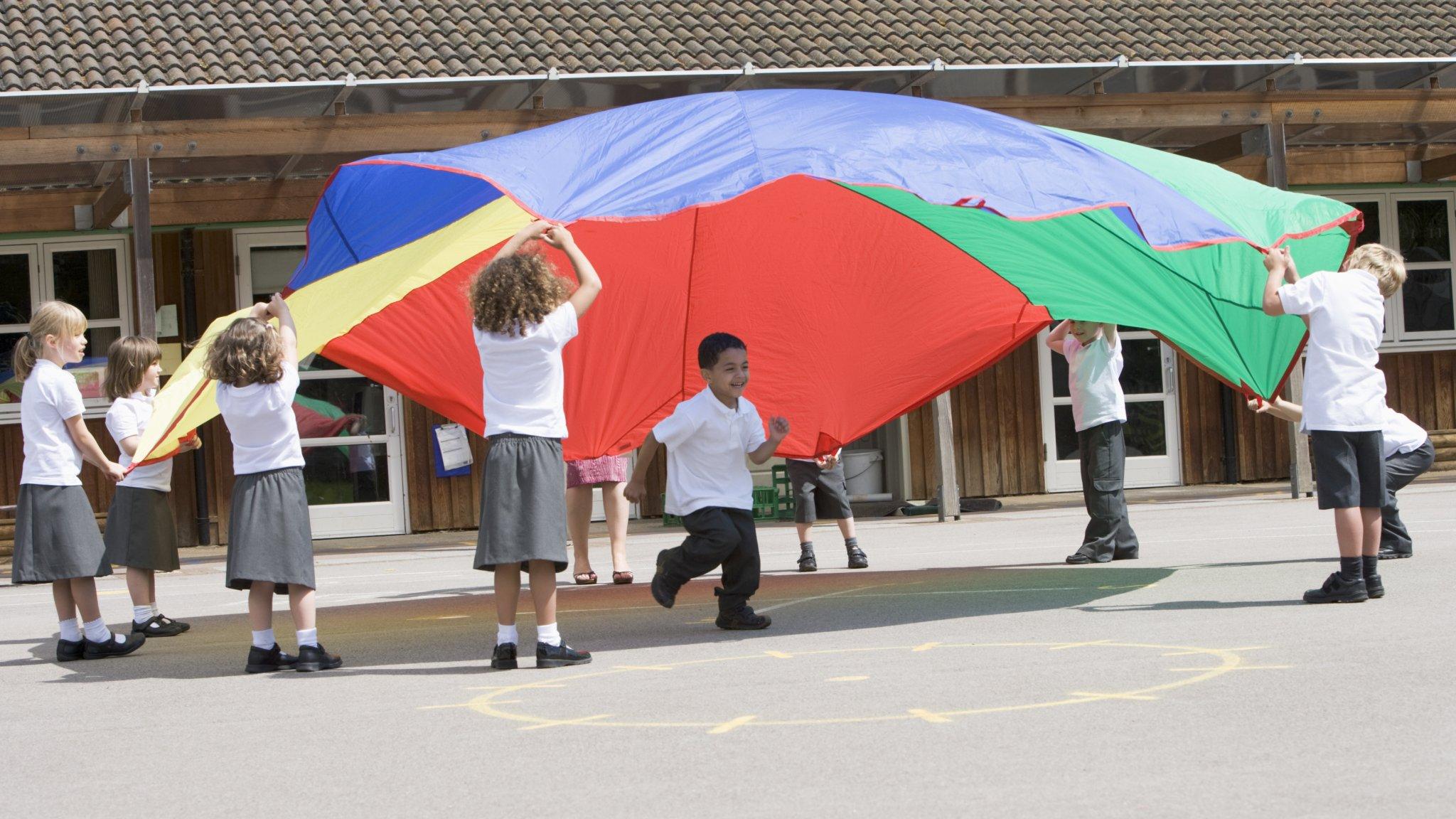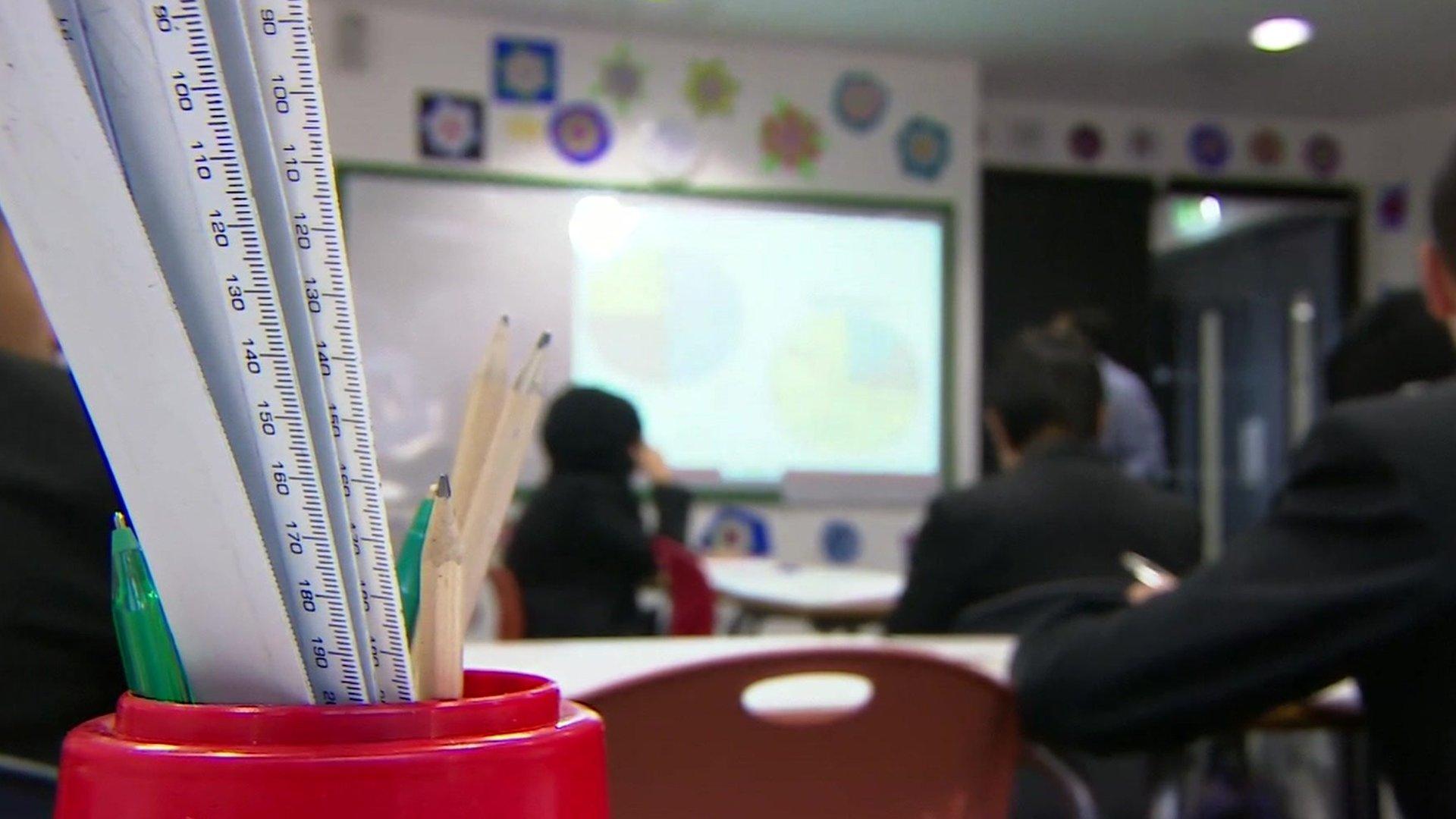White British pupils 'lag behind ethnic minority peers'
- Published

The Centre Forum study looks at a range of factors surrounding education in England
White British pupils in England make less progress in school compared to other ethnic groups, a report suggests.
The Centre Forum says that while ahead at age five, this group slips to 13th place behind those of Chinese, Indian, Asian and black African heritage by the time they sit GCSEs at the age of 16.
The study also says pupils in England's schools are not performing as well as their peers around the world.
The government welcomed the report, saying it was right to raise standards.
The Centre Forum study, which looks at a wide range of factors surrounding education in England, found pupils from Chinese or Indian backgrounds were likely to make the most progress.
Attainment
The report acknowledges that overall levels of attainment in England are rising.
"Since 2005, average performance at the end of secondary school has improved by just over half a GCSE grade," the report says.
"Primary pupils are also achieving about a fifth of a national curriculum level higher than 10 years ago."
But the analysis suggests that more than 60% of secondary and 40% of primary pupils are failing to reach world-class standards on writing, literacy, maths and science, and their performance still falls short of the world's leading countries in education such as Finland and Canada.
Accounting for changes to exams, which will see more academic subjects become mandatory and a new grades system, the Centre Forum predicts a drop in those achieving a "good pass" in subjects like maths and English.

The report says younger children achieve a good level of development
It also shows regional division, with secondary pupils in London outperforming their counterparts in the north of England.
Knowsley, Blackpool, Stoke on Trent, Nottingham city, Barnsley and Doncaster are cited as the worst performing areas of the country in attainment and progress.
However, data for younger children shows they are achieving a good level of development in line with the top-performing countries.
Jo Hutchinson, Centre Forum's associate director for education, said parental engagement was key to pupils' success.
"We are talking about things such as parents attending parents' evenings at school, talking to their children about subject options, supervising homework, ensuring that the family eats together and has regular bedtimes," she said.
"Most parents actually want their children to continue in education and be successful in education. What sometimes differs is the extent to which they have the knowledge and the tools and resources to help them to make that aspiration real."

Analysis by education editor Branwen Jeffreys
For a child, learning English as a second language, should on the face of it, be a significant disadvantage in education. But across England these children have been making good progress at school, and improving their results.
This complex and subtle analysis suggests the ethnic mix in different communities is one potential factor behind regional variations in school performance. And for poorer pupils those regional variations can mean falling behind by the equivalent of almost half a year.
When Centre Forum looked at the progress of similar children through primary and secondary school, white British pupils fell behind other ethnic groups. A child from a Chinese or Indian background was likely to make the most progress.
The report will add to the growing concern about children from poorer white British communities. It's not just what happens at school, but what happens at home that makes a difference. The value parents place on education, and simple daily rituals of helping with homework or regular bedtimes, can help a child. The challenge for schools is how to help provide that focus, hope and ambition in communities where a lack of jobs or a feeling of being left behind can also be a powerful influence on children.

A Department for Education spokeswoman said: "We welcome this report which shows the stark choice we face in education today - either we prepare today's young people to compete with the best in the world, or we don't.
"Every time we have raised the bar for schools and colleges, they have risen to meet the challenge and we are confident that this is no exception.
"Over time we expect to see more pupils reach this new higher standard and the attainment gap between disadvantaged pupils and their peers continuing to narrow."
- Published4 April 2016

- Published12 January 2016

- Published10 November 2015
